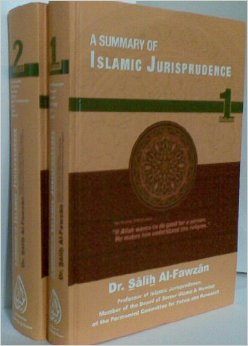Why Do Islamic Charities Send Zakat to Terrorists? Because Shariah Says They Must
One of the most popular and most important subjects on SFW is the issue of Zakat.
Zakat is a form of tithing in Islam and is considered one of the Five Pillars of the faith. Essentially, every Muslim who is able to do so is required to give 1/40 of his wealth each year to the “needy” through the system of zakat. Today, most of the zakat payments, at least in the West, go through Islamic charities and mosques.
This has proven to be a problem because so many Islamic charities and mosques have been shown to provide material support for terrorism–a subject that we have covered on SFW repeatedly:
https://shariahfinancewatch.org/category/islamic-charities/
There is, of course, a connection to Shariah-compliant finance here. Shariah-compliant institutions, as well as many Shariah-compliant investment vehicles and transactions, are required to make zakat donations. And the explanations of the system of zakat show just exactly why zakat ends up funding terrorism (an explanation we will get to once again in a moment). We have addressed this previously, citing Islamic Shariah scholars and texts. We cited one text in particular, the widely circulated and popular Reliance of the Traveler:
https://shariahfinancewatch.org/2012/08/28/how-zakat-funds-jihad/
It is very important to show, however, that Reliance of the Traveler is far from the only authoritative manual of Islamic sacred law that confirms the use of zakat to fund Jihad. In fact, some discount (inappropriately and incorrectly) the importance of Reliance because it traces its origins back several hundred years.
Therefore, when we find another authoritative text that confirms zakat funding Jihad, we are absolutely compelled to reveal it in as great detail as practical. Now is just such an opportunity/
Recently we were introduced to a manual of Shariah that was offered for sale at the annual convention of the Islamic Society of North America (ISNA). ISNA is the largest Muslim organization in the United States. They have also been exposed as a Muslim Brotherhood organization and were named as an unindicted co-conspirator in the Holy Land Foundation trial, the largest terrorism financing prosecution in US history. More recently, ISNA’s Canadian wing lost its charity status for sending $280,000 to a Jihadist terrorist group in Pakistan. Even more recently, President Obama supplied a videotape message to the ISNA convention praising the organization, despite–we hope–its ties to the Muslim Brotherhood and the Holy Land Foundation.
The Shariah manual that was offered for sale at the ISNA convention is a two-volume set known as A Summary of Islamic Jurisprudence. It was written by Dr. Salih Al-Fawzan in 2005.
Sheikh Fawzan is considered one of the most esteemed Shariah scholars in the entire Islamic world, having received three degrees in Shariah from the University of Imam Muhammad in Riyadh, Saudi Arabia. He is a member of the Council of Senior Scholars, the Fiqh Committee in Mecca and the Committee for Supervision of the Callers in Hajj. He also heads the Permanent Committee for Islamic Research and Fatwas. He is the Imam at the Prince Mut’ib Ibn Abdul-Aziz Mosque, hosts a national radio program in Saudi Arabia and has published 60 books.
A Summary of Islamic Jurisprudence is published by Al-Maiman Publishing House in Riyadh, Saudi Arabia.
Several chapters of Volume 1 are devoted to zakat. Chapter 8 is devoted in its entirety to “Entitled Recipients of Zakat.”
This chapter provides a complete explanation of the 8 categories of recipients of zakat who are entitled to receive it. Of particular interest to those of us in the West is the seventh category. From pages 364-365 of A Summary of Islamic Jurisprudence, Volume 1:
The seventh category is that spent in the Cause of Allah such as that given to warriors who volunteer in fighting for the Cause of Allah and they do not take salaries from the Public Treasury of Muslims. Generally, the phrase “the Cause of Allah” refers to the war against the enemies of Muslims, as Allah, Exalted be He.”
This passage is particularly important because it defines “the Cause of Allah.” Other sources, such as Understanding Islamic Law (Shari’a) by Professor Raj Bhala, have used this vague phrase and implied that it had nothing to do with war or fighting. Clearly, Sheikh Al-Fawzan clarifies this point. To conceal or deny that zakat funds warfare is a form of taqiyya (sacred deception).
It is not refutable; zakat funds warriors who volunteer to fight for the Cause of Allah against the enemies of Muslims, but who do not draw a salary. This can only be interpreted to mean irregular combatants–terrorists.
It is vital that everyone understand that NO ONE is permitted to change these laws. Shariah is regarded as Allah’s law. So when someone on Wall Street or Fleet Street claims that no proceeds from their Shariah-compliant institutions, products, transactions or instruments could possibly be used for a nefarious purpose, they have no basis for these hollow assurances, simply because they have no authority or control over the ultimate distribution of zakat funds.
One Response to Why Do Islamic Charities Send Zakat to Terrorists? Because Shariah Says They Must
Categories
Archives





The UK is jumping on the bandwagon.